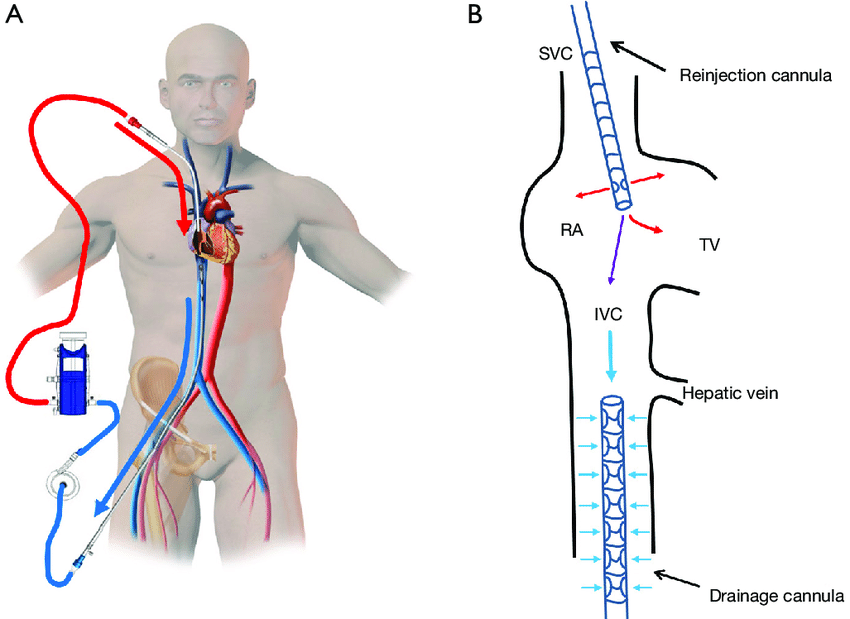 For individuals facing severe respiratory challenges, Veno-Venous Extracorporeal Membrane Oxygenation (VV ECMO) serves as the best option. This innovative procedure offers temporary support to the lungs, particularly when traditional methods prove insufficient.
For individuals facing severe respiratory challenges, Veno-Venous Extracorporeal Membrane Oxygenation (VV ECMO) serves as the best option. This innovative procedure offers temporary support to the lungs, particularly when traditional methods prove insufficient.
Understanding VV ECMO:
VV ECMO, short for Veno-Venous Extracorporeal Membrane Oxygenation, is a sophisticated medical procedure designed to provide temporary respiratory support. This involves extracting blood from a vein, oxygenating it externally, and then returning it to the body. By doing so, VV ECMO allows the lungs to rest and recover.
Considered for patients with severe respiratory failure, such as acute respiratory distress syndrome (ARDS), VV ECMO is implemented in an intensive care setting. Patients receive personalized care from a dedicated medical team throughout the procedure, ensuring close monitoring and support.
Benefits and Considerations:
The benefits of VV ECMO are substantial, offering a crucial bridge to respiratory recovery. This life-saving measure is particularly relevant for patients facing critical respiratory challenges. However, like any medical intervention, VV ECMO is not without potential risks. Each patient undergoes a thorough evaluation to ensure that the benefits outweigh potential complications.
Outcomes and Recovery:
Successful VV ECMO can lead to improved lung function and an overall pathway to recovery. The journey involves ongoing monitoring and support, with patients transitioning from VV ECMO to traditional ventilation as their lung function improves.